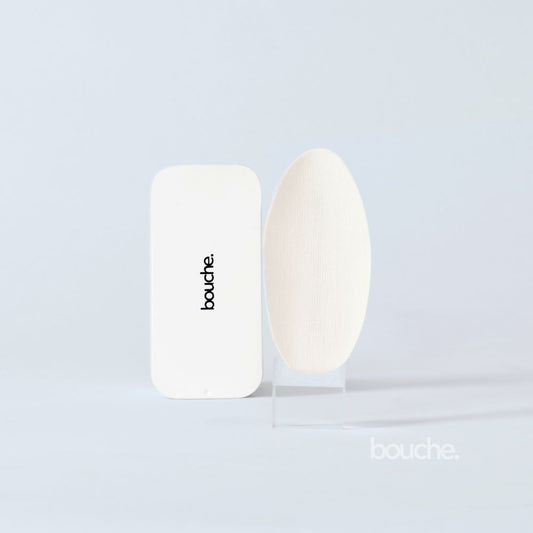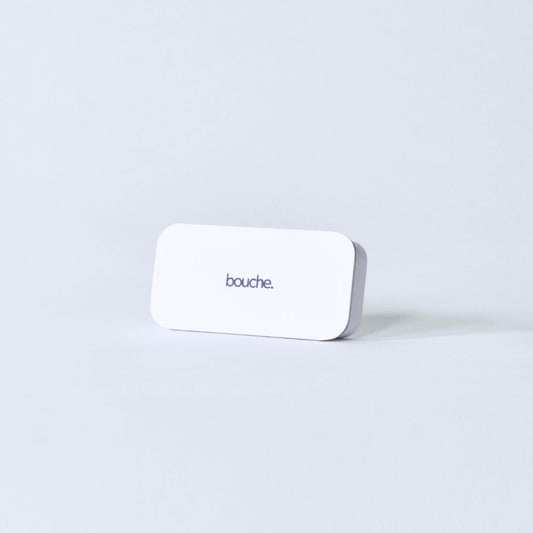Vitamins and sleeplessness are often discussed together, especially as more people turn to supplements for health and wellness. But can vitamins actually cause insomnia? The answer is complex. Certain vitamins are essential for restful sleep, while others, if taken incorrectly, can lead to restless nights.
This article breaks down the science behind vitamins and sleep, highlighting which supplements can disturb your rest and which vitamins help you sleep. We'll explore how to optimize your routine by taking vitamins at night versus in the morning, which vitamins should not be taken together, and effective natural sleep aids. We will also look at how science-backed tools like mouth taping and nasal strips from Bouche can support deeper, more restorative sleep.
How Vitamins Affect Sleep
Vitamins play a vital role in nearly every system in the body, including those that regulate sleep. Deficiencies in vitamins such as D, B6, B12, C, and E have been linked to poor sleep quality and insomnia. However, taking certain supplements—especially in excess or at the wrong time—can also disrupt sleep.
The relationship between vitamins and sleep is a delicate balance:
- Deficiencies in key vitamins can lead to sleep problems.
- Excessive intake or improper timing of certain supplements may also cause sleeplessness.
- Some vitamins support the production of sleep-regulating hormones like melatonin, while others may interfere with these processes if not balanced correctly.
Vitamins Linked to Sleep Disturbances
Not all vitamins affect sleep in the same way. Here’s a closer look at the most commonly discussed vitamins and their impact on sleep.
Vitamin D
Vitamin D is essential for bone health, immunity, and sleep regulation. Research shows that low levels of vitamin D are associated with a higher risk of insomnia and poor sleep quality. However, the timing and dosage matter. Can vitamin D cause insomnia? Yes, particularly when taken in high doses or late at night. Research suggests that high levels of vitamin D can suppress melatonin, the hormone that signals your body it's time to sleep. For this reason, it's often best to take vitamin D in the morning.
B Vitamins (B6 and B12)
B vitamins are crucial for energy production and nervous system health. While both B6 and B12 can cause sleep disturbances if taken late in the day, Vitamin B6 also offers significant benefits for sleep.
One of the key benefits of vitamin B6 is its role in producing serotonin and melatonin, two hormones essential for calm and restful sleep. Some studies suggest that Vitamin B6 may improve sleep quality and even reduce symptoms of restless legs syndrome, a condition that can disrupt sleep. However, because B vitamins can have an energizing effect, it is best to take them in the morning.
Vitamin C and E
Vitamin C is a powerful antioxidant that helps combat oxidative stress, a state linked to poor sleep. While deficiency can lead to sleep problems, excessive supplementation is not typically a cause of insomnia. Similarly, a lack of Vitamin E is associated with shorter sleep duration, but high doses are not commonly tied to sleeplessness.
Multivitamins
Some research suggests that people who take multivitamins may experience more nighttime awakenings. This could be due to the stimulating effects of certain ingredients, like B vitamins or added compounds like ginseng, or the complex interactions between different nutrients.
Which Vitamins Should Not Be Taken Together?
To get the most out of your supplements, it’s important to understand how they interact. Some vitamins and minerals compete for absorption in the body, meaning one can block the effectiveness of the other.
- Iron and Calcium: These two minerals interfere with each other's absorption. If you take an iron supplement, you should take it at a different time than a calcium supplement or calcium-rich foods like milk.
- High Doses of Competing Minerals: High doses of calcium, zinc, and magnesium can compete with one another for absorption. If you are taking these as individual supplements, it is best to space them out.
- Zinc and Copper: Zinc can interfere with copper absorption, so these supplements should be taken at least a few hours apart.
Natural Sleep Aids to Consider
Beyond foundational vitamins, certain supplements are renowned for their ability to promote sleep.
- Magnesium: This essential mineral is involved in hundreds of processes in the body, including the regulation of neurotransmitters that promote calm and relaxation. Studies have shown that magnesium supplementation can improve sleep time, sleep efficiency, and may help reduce symptoms of insomnia.
- Melatonin: Known as the "sleep hormone," melatonin controls the body's sleep-wake cycle. While effective, it's a powerful hormone and should be used mindfully. Research shows that a combination of magnesium, melatonin, and vitamin B can be an effective treatment for insomnia.
How to Adjust Your Supplement Routine
If you suspect your vitamins are affecting your sleep, consider these steps:
- Check the Timing: Take stimulating vitamins (like B6, B12, or D) in the morning or early afternoon, not at night.
- Review Your Doses: Avoid taking more than the recommended daily allowance unless specifically prescribed by a healthcare professional.
- Simplify Your Regimen: If you suspect a multivitamin is the issue, consider switching to single-ingredient supplements to pinpoint the cause.
- Consult a Healthcare Provider: Before making significant changes, talk to a doctor or nutritionist who can provide personalized advice.
When to See a Healthcare Professional
Persistent insomnia, even after adjusting your supplement routine, may require professional help. See a healthcare provider if:
- Sleep problems last more than three weeks.
- You experience severe fatigue, mood changes, or memory issues.
- You’re taking multiple supplements or medications that could interact.
Bouche: A Science-Backed Solution for Restful Sleep
Optimizing your vitamin intake is a critical step toward better sleep, but it's only part of the puzzle. True restorative rest also depends on how you breathe. At Bouche, we are committed to improving health through science-backed, non-invasive tools that support the body’s natural processes. Our flagship medical-grade mouth tape promotes nasal breathing during sleep—the body’s most efficient way to breathe.
Nasal breathing helps reduce inflammation, filter allergens, and maintain optimal oxygen levels, which are all crucial for deep, uninterrupted sleep. For those with mild obstructive sleep apnea, mouth taping has been shown to be particularly effective. A 2022 study found that it reduced the apnea-hypopnea index (AHI) and snoring by nearly half. By encouraging proper oral posture, consistent nasal breathing may also support a more defined jawline over time. Bouche mouth tape is designed for comfort with hypoallergenic, sensitive-skin-friendly materials and is fully CPAP-compatible. For even greater airflow and a complete breathing solution, many users pair it with our transparent nasal strips, which gently open the nasal passages. You can find both together in our Breathe Better Kit.
Conclusion
Vitamins and sleep are deeply connected. While deficiencies can disrupt rest, so can excessive or poorly timed supplementation—especially with vitamin D, B vitamins, and certain multivitamins. By understanding which vitamins help you sleep and how to create a smart supplement schedule, you can take control of your nights.
For those seeking to enhance their sleep quality further, integrating evidence-based tools like Bouche mouth tape offers a natural, non-invasive solution. Prioritizing both your internal nutrition and your physical breathing patterns provides a holistic approach to achieving truly restful sleep.
Frequently Asked Questions (FAQs)
Q. What supplements should I not take at night?
Avoid taking B vitamins and high doses of vitamin D close to bedtime, as they can be stimulating. Some multivitamins containing these ingredients should also be taken in the morning.
Q. Can vitamin D cause insomnia?
Yes, high doses of vitamin D, particularly when taken late in the day, may interfere with melatonin production and contribute to insomnia in some individuals.
Q. What are the benefits of vitamin B6 for sleep?
Vitamin B6 is a crucial vitamin for sleeplessness because it aids in the production of serotonin and melatonin, hormones that regulate mood and the sleep-wake cycle.
Q. Which vitamins should not be taken together?
To ensure optimal absorption, avoid taking iron with calcium, or high doses of zinc with copper. High doses of calcium, magnesium, and zinc should also be taken at different times.
Q. What are some effective natural sleep aids?
Magnesium and melatonin are two of the most well-researched and effective natural sleep aids. Studies show they can improve sleep quality and help regulate the body's sleep cycle.






